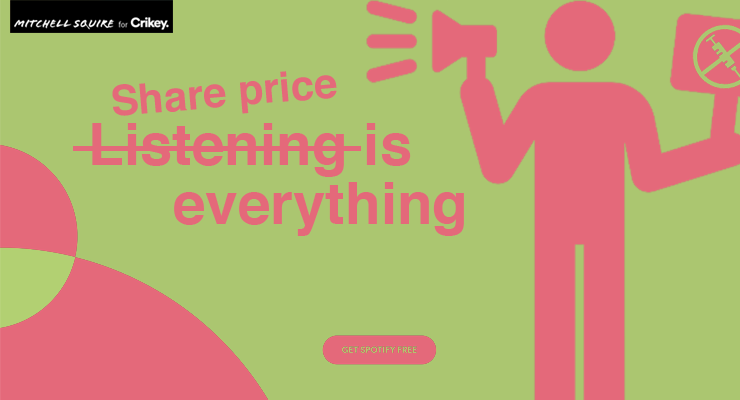
The face-off between Canadian-American singer Neil Young and streaming giant Spotify ramped up over the weekend, with several other artists and podcasters backing the musician’s stance against podcaster Joe Rogan’s COVID-19 vaccine misinformation.
Here’s how it happened: last week, Young released a letter addressed to his manager and record label asking that Spotify no longer host his music while also hosting Rogan’s podcast, as the latter, he said, spread misinformation about COVID-19 vaccines.
This isn’t the first time Joe Rogan’s podcast, The Joe Rogan Experience, has come under fire for spreading COVID-19 misinformation. The podcaster is a big proponent of the use of ivermectin, an anti-parasitic drug, to treat COVID-19 (a claim that has since been thoroughly debunked). Earlier this month, 270 scientists and medical professionals publicly urged Spotify to take action against Rogan, accusing him of spreading COVID-19 vaccine falsehoods on the podcast.
However, Rogan’s podcast has 11 million listeners per episode, and is the cornerstone of Spotify’s US$500 million push into the podcast space. This article by The Washington Post explains this well.
Spotify didn’t take long to side with Rogan, removing Young’s entire back catalogue of music. A number of other musicians and podcasters have come out in support on Young — including fellow Canadian Joni Mitchell — asking to have their catalogues removed and saying they wouldn’t be uploading until the issue is dealt with. Or, in James Blunt’s case, threatening to upload MORE music to the platform.
Even the Duke and Duchess of Sussex voiced concern over the issue, although they stopped well short of cancelling their multi-year podcast partnership with Spotify.
Spotify’s shares took a dive as the announcements streamed in, dropping by 12% — although there’s been a small uptick this morning after it announced it would add advisory labels to COVID-19 content, similar to what Facebook (sorry, “Meta”) have done.
Indeed this is not the only parallel between the two tech companies. With Spotify’s push into podcasts — meaning its product is information, not just music — it has found itself facing the same question that the other tech giant came up against several years ago: is it a publisher, or a platform?
Likely it will follow in Zuckerberg’s footsteps — act as a publisher, but retain all the legal protections granted to platforms — in order to have its cake and eat it too.








I’ve canned my Spotify account.
TBF I’m more of a Band Camp fan anyway and prefer to buy the music I like rather than rent it.
Rogan is the pits, an Alex Jones lite.
I guess you have never watched him with a critical eye then. He has intelligent conversations with all sorts of people and apologises if it is shown he had given misinformation. The major networks have audience envy and are trying to destroy him. Things are not always as obvious as they appear.
Rohan’s podcasts with several of the world’s top scientists, such as Brian Cox and Neil degrass Tyson, were excellent and informative. As for the rest. It’s a little mixed.
I just want the freedom-of-speech enthusiasts to recognise the difference between censorship and boycott.
That includes one of his sort of regular guests, former comedian Doug Stanhope who claims to be a humanist libertarian for ‘free speech’ but simply comes across now as unfunny, complaining and angry….. for an audience of similarly minded middle aged (even better if younger) white guys looking for inspiration and authority, then to vote GOP…. exercising their Kochian ‘freedom & liberty’.